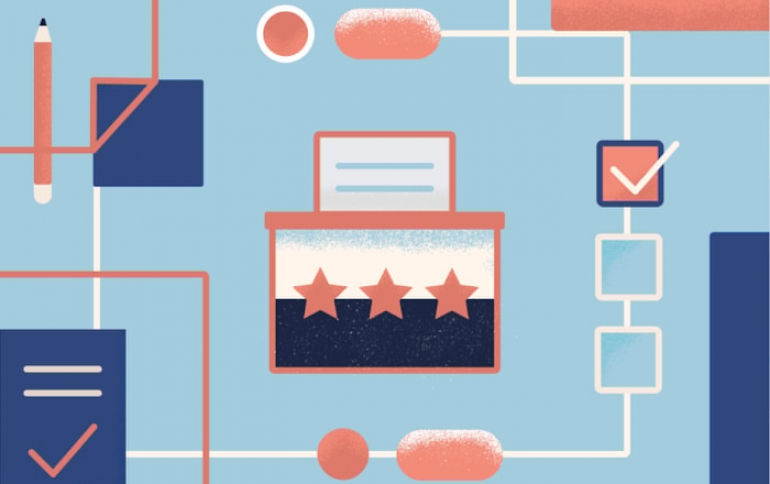
Facebook Removed Iranian and Russian Accounts Ahead of 2020 Election
Facebook on Monday said it removed four separate networks of accounts, Pages and Groups on Facebook and Instagram for engaging in "coordinated inauthentic behavior."
Three of them originated in Iran and one in Russia. They targeted the US, North Africa and Latin America. Facebook said it identified these manipulation campaigns as part of its internal investigations into suspected Iran-linked inauthentic behavior, as well as ongoing proactive work ahead of the US elections.
"We took down these networks based on their behavior, not the content they posted. In each case, the people behind this activity coordinated with one another and used fake accounts to misrepresent themselves, and that was the basis for our action. We have shared our findings with law enforcement and industry partners," Facebook said.
“We see this operation targeting largely U.S. public debate and engaging in the sort of political issues that are challenging and sometimes divisive in the U.S. right now,” said Nathaniel Gleicher, Facebook’s head of cybersecurity policy.
“Whenever you do that, a piece of what you engage on are topics that are going to matter for the election. But I can’t say exactly what their goal was.”
U.S. security officials have warned that Russia, Iran and other countries could attempt to sway the result of next year’s presidential vote and say they are on high alert for signs of foreign influence campaigns on social media.
In total, Facebook today removed 93 Facebook accounts, 17 Pages and four Instagram accounts. Their activity originated in Iran and focused primarily on the US, and some on French-speaking audiences in North Africa. The individuals behind this activity used compromised and fake accounts — some of which had already been disabled by Facebook's automated systems — to masquerade as locals, manage their Pages, join Groups and drive people to off-platform domains connected to our previous investigation into the Iran-linked “Liberty Front Press” and its removal in August 2018. The Page admins and account owners typically posted about local political news and geopolitics including topics like public figures in the US, politics in the US and Israel, support of Palestine and conflict in Yemen.
About 7,700 accounts followed one or more of these Pages and around 145 people followed one or more of these Instagram accounts.
Facebook also also removed 38 Facebook accounts, 6 Pages, 4 Groups and 10 Instagram accounts that originated in Iran and focused on countries in Latin America, including Venezuela, Brazil, Argentina, Bolivia, Peru, Ecuador and Mexico. The Page administrators and account owners typically represented themselves as locals, used fake accounts to post in Groups and manage Pages posing as news organizations, as well as directed traffic to off-platform domains. They frequently repurposed Iranian state media stories on topics like Hezbollah, conflict between Iran and Saudi Arabia, tensions between Israel and Palestine and Iran and the US, war in Yemen, as well as posted content tailored for a particular country including domestic news, geopolitics and public figures.
About 13,500 accounts followed one or more of these Pages, about 4,200 accounts joined at least one of these Groups and around 60,000 people followed one or more of these Instagram accounts.
In a blog post Monday, Facebook also also disclosed some adjustments to its policies meant to combat foreign influence and manipulation. Facebook will now identify posts from state-controlled media, provide more information about the country of origin for Facebook pages, and help further secure political candidates’ Facebook pages.
The efforts outlined include a special security tool for elected officials and candidates that monitors their accounts for hacking attempts such as login attempts from unusual locations or unverified devices. Facebook said Monday it will also label state-controlled media as such, label fact-checks more clearly and invest $2 million in media literacy projects.
The company says it will also add more prominent labels on debunked posts on Facebook as well as on Instagram. It will put labels on top of what are deemed "false" and "partly false" photos and videos. But Facebook will continue to allow politicians to run ads containing misinformation.
Facebook also says it will add more information about the people or groups who establish or manage Facebook pages. The company said Monday it has noticed groups and people "failing" to disclose the organizations behind pages so people think it is run independently. Starting with large pages in the U.S., Facebook says it is adding a new section about "organizations that manage this page."
Facebook says it will require the page's creators to add this information in order to run ads. The rule applies to pages that have gone through the company's business verification process and to pages that run ads about social issues, elections or politics. If the page creators don't post this information, they won't be allowed to advertise.





















